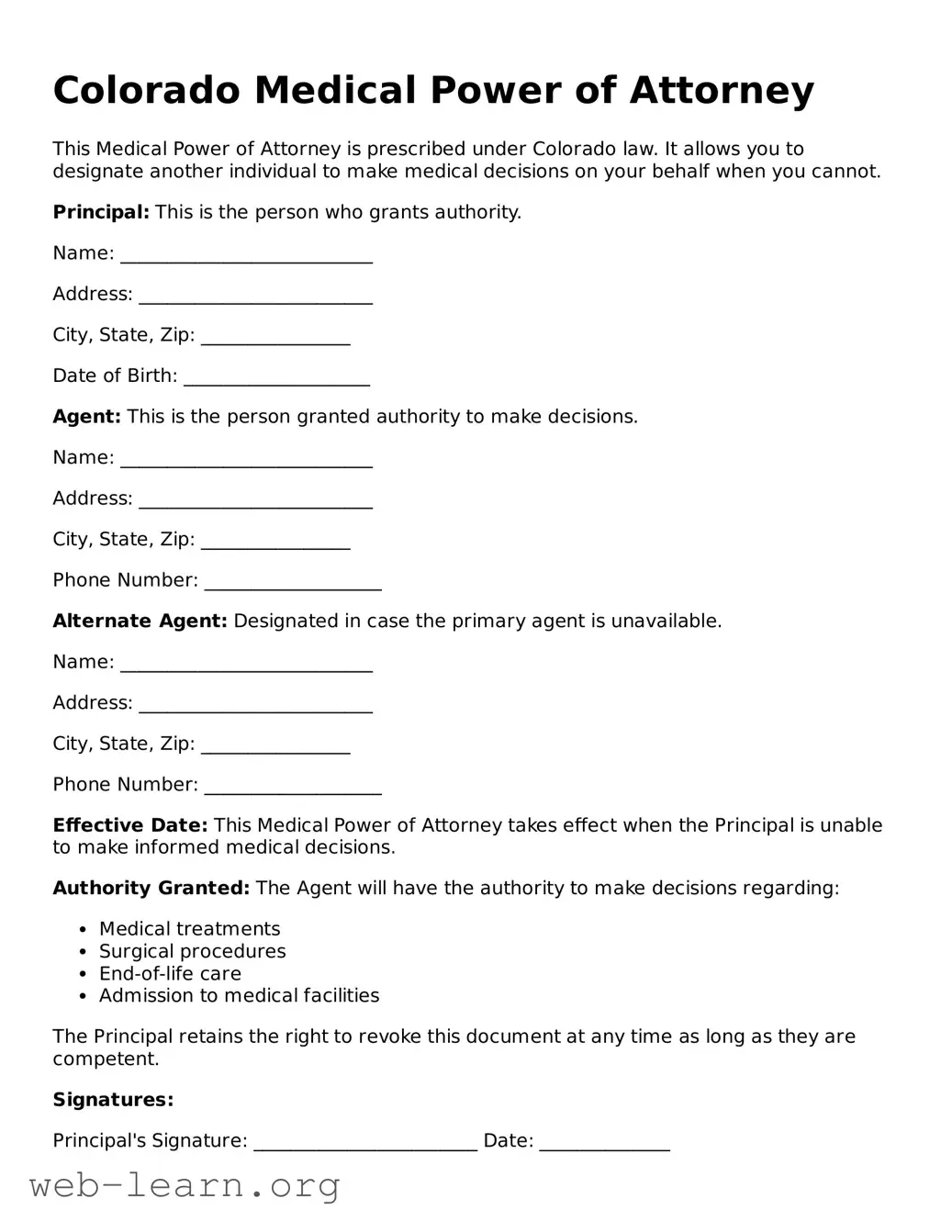Colorado Medical Power of Attorney
This Medical Power of Attorney is prescribed under Colorado law. It allows you to designate another individual to make medical decisions on your behalf when you cannot.
Principal: This is the person who grants authority.
Name: ___________________________
Address: _________________________
City, State, Zip: ________________
Date of Birth: ____________________
Agent: This is the person granted authority to make decisions.
Name: ___________________________
Address: _________________________
City, State, Zip: ________________
Phone Number: ___________________
Alternate Agent: Designated in case the primary agent is unavailable.
Name: ___________________________
Address: _________________________
City, State, Zip: ________________
Phone Number: ___________________
Effective Date: This Medical Power of Attorney takes effect when the Principal is unable to make informed medical decisions.
Authority Granted: The Agent will have the authority to make decisions regarding:
- Medical treatments
- Surgical procedures
- End-of-life care
- Admission to medical facilities
The Principal retains the right to revoke this document at any time as long as they are competent.
Signatures:
Principal's Signature: ________________________ Date: ______________
Agent's Signature (if desired): _______________ Date: ______________
Witnesses: This document must be signed in the presence of two adult witnesses.
- Witness Name: ____________________________ Signature: ________________ Date: ______________
- Witness Name: ____________________________ Signature: ________________ Date: ______________
Notary Public: Consider having this document notarized for additional validity.
State of Colorado, County of _______________________________
Subscribed and sworn before me, this ___ day of ____________, 20__.
Notary Public: _______________________ My commission expires: ____________
